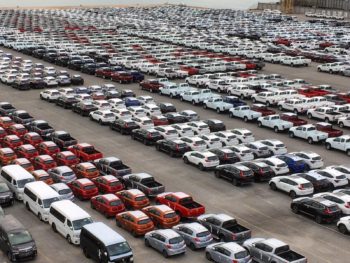WLTP impact reflected in latest new car licensing stats
The Department for Transport has published Q3 figures showing the impact of the introduction of the WLTP cycle on new car licensing figures.
The figures show 747,000 vehicles of all categories were registered for the first time in Great Britain during July to September 2018 (2018 Q3). This was 8.4% lower than during 2017 Q3 and 16.3% lower than during 2016 Q3. However, it was similar to 2013 new registrations and still 8% higher than during the 2008/09 recession.
The DfT added that the 1 September introduction of the Worldwide Harmonised Light Vehicle Test Procedure (WLTP) had been a contributory factor to the decline this quarter due to additional testing prior to new registrations causing restrictions of available models. As a result, fleet registrations fell 22.4% in September, while the overall new car market was down 20.5%.
Latest SMMT figures show that new car registrations are now starting to level out but WLTP testing remains an issue; according to Jato figures, more than a third (37%) of carmakers’ model ranges were still not WLTP-homologated by mid November.
The latest DfT licensing stats also show that new diesel car registrations continued to fall sharply in Q3, contrasted by increases for petrol and alternative fuel cars. Diesel registrations saw a 34% drop compared to 2017 Q3, to just 176,000 cars, which is below the 2008/09 recession dip and similar to 2002 registrations. This was the second year of sharp decline in the third quarter, following the 21% decrease in new diesel car registrations in 2017 Q3.
Over two years, registrations fell by 48% with 161,000 fewer diesels being registered for the first time. Diesel cars accounted for 47% of all new car registrations in 2016 Q3, which has dropped to just 30% in 2018 Q3.
In contrast, Ultra Low Emission Vehicles continued to increase their share of new registrations in the UK. In 2018 Q3, 16,387 ULEVs were registered for the first time in the United Kingdom, up 12% on 2017 Q3 and 49% on 2016 Q3. ULEVs accounted for 2.1% of all new vehicle registrations – up from 1.8% one year previously and 1.2% two years previously. The vast majority (89%) of these ULEVs were eligible for plug-in grants. New registrations of ULEVs in 2018 Q3 included 14,125 cars and 325 light goods vehicles.













